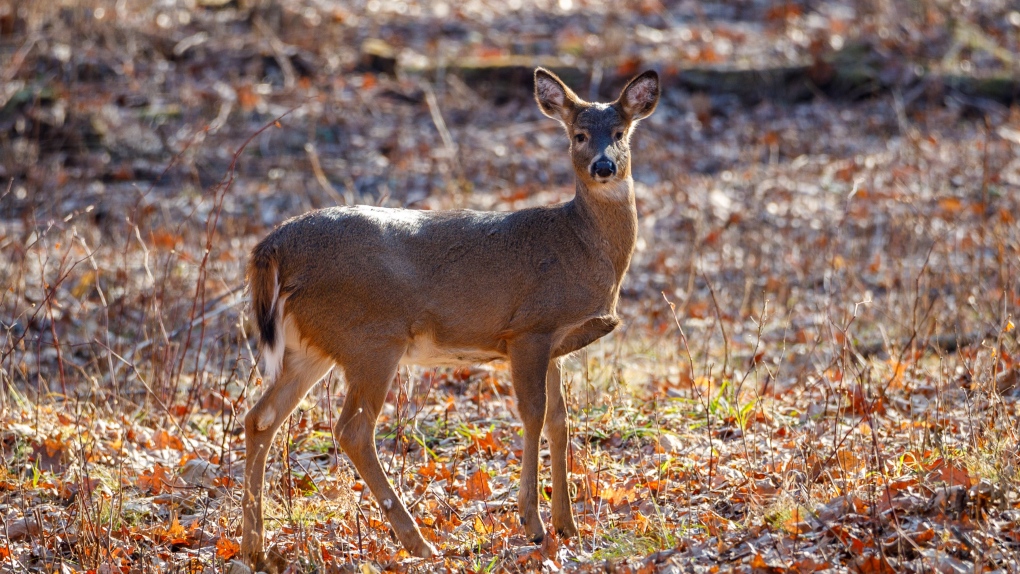
Another case of 'zombie deer' disease confirmed in B.C.'s Kootenays
CTV
Health officials have confirmed a fourth case of chronic wasting disease in B.C.’s Kootenay region, prompting calls for a swift cull to prevent further spread.
Health officials have confirmed a fourth case of chronic wasting disease in B.C.’s Kootenay region, prompting calls for a swift cull to prevent further spread.
The latest case was detected in a white-tailed deer that was harvested by a hunter back in October, near the community of Cranbrook, according to the Ministry of Water, Land and Resource Stewardship.
While the government noted there is no “direct evidence” the disease can be transmitted to humans, officials reiterated Tuesday that eating the meat of an infected animal should be avoided.
“Cooking temperatures cannot destroy the abnormal protein that causes chronic wasting disease if an animal is infected,” the minister said in a news release.
B.C.’s first two cases of chronic wasting disease – sometimes knowns as “zombie deer” disease, due to the disturbing appearance of animals late in their infection – were confirmed by the Canadian Food Inspection Agency in January, and the third was confirmed in November.
The cases include “a hunter-harvested mule deer and two white-tailed deer, one of which was killed in a road accident and the other was harvested by a hunter,” according to the ministry.
All of the confirmed infections have come from deer found near Cranbrook, though the disease can also spread to other members of the cervid family, such as elk, moose and caribou.
